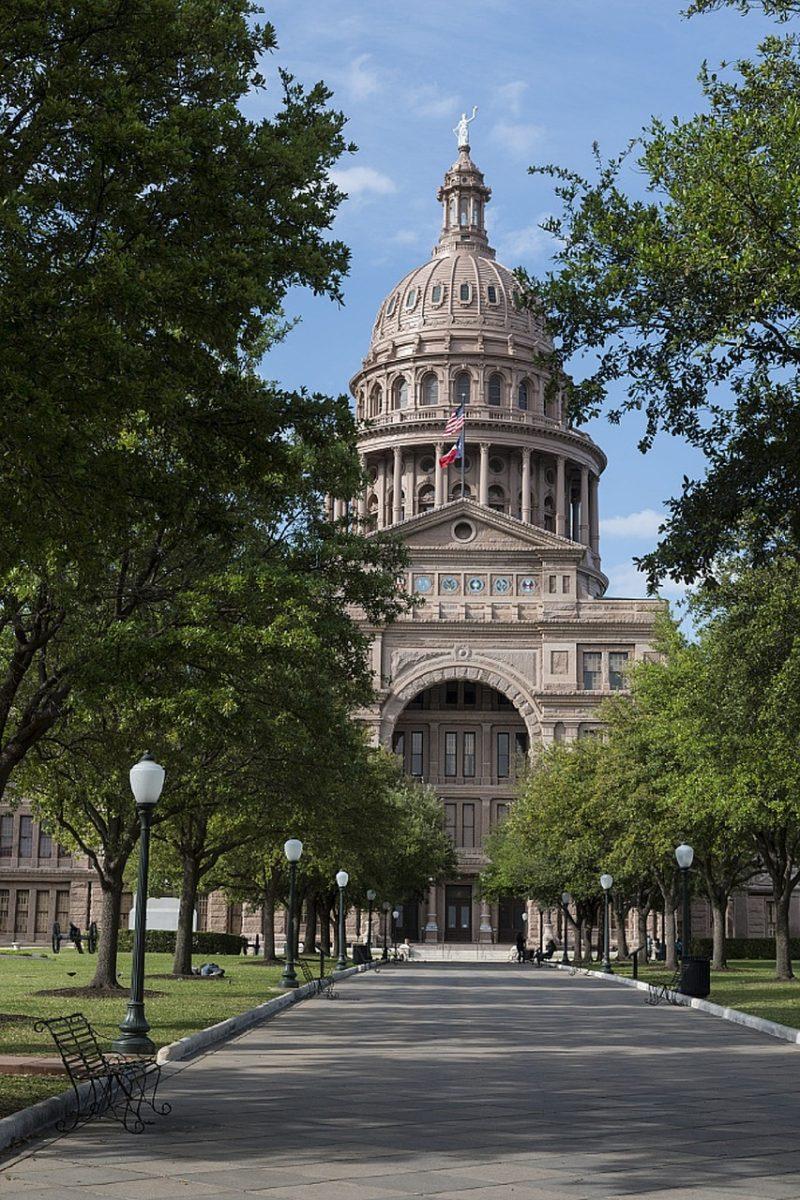President Trump recently announced a temporary lift on the government shutdown after 35 days. 1,500 of miles away from DC, central Texans are beginning to feel the burdening effects.
The shutdown has been temporarily lifted as of Jan. 25. President Trump announced the government will shut down again on Feb. 15 if no consensus is met.
The shutdown has been in effect since Dec. 22, resulting from a disagreement over a bill regarding border security. It was the third government shutdown in 2018 and the longest lasting in U.S. history.
The shutdown is partial, meaning it began when most government agencies have already received appropriate funding. Payment to federal employees not paid through congressional appropriations is not affected. Congress members continue to receive pay.
While payment to federal workers ceased during the 35 days, payment for work during the shutdown should be disbursed now the government has reopened, though it is not guaranteed.
President Trump proposed a counteroffer Jan. 14 in exchange for $5.7 billion in border wall funding. His proposal offered temporary protections for Deferred Action for Childhood Arrivals beneficiaries and temporarily protected status holders.
The following week of Jan. 25, the Senate voted against his proposal and a bill proposed by Democrats that offered a clean stop to the shutdown.
Over 670,000 federal employees are unionized by the The American Federation of Government Employees. However, AFGE cannot provide funds for federal workers during the shutdown because workers must be on a labor strike. A strike is not an option, due to a law banning the action that was passed in 1978 under President Carter.
While some federal employees are expected to work without pay during the shutdown, others are furloughed: granted a temporary leave of absence.
Texas Congressman Dan Crenshaw recently tweeted that the House GOP voted to pay federal furloughed employees their first paycheck in 2019. However, it failed to gain enough Democratic votes and did not pass.
Amya Oliver, University of Texas student, is feeling the repercussions of the shutdown. Her father, who works for the government, was furloughed.
She said it has not had a significant financial impact on her family, as they have accessible savings. She said they may be in trouble if the family did not have money saved.
“Honestly, I’m more concerned for other people than I am for my own family simply because I know that there are a lot of Americans who are forced to live paycheck to paycheck,” Oliver said. “(I think it’s hard) especially since the (government) shutdown happened close to Christmas time. I know that that’s tough as any parent to look (your kids) in the eyes and say, ‘I’m sorry, we can’t afford Christmas presents.’”
According to CBS News, the government shutdown resulted in approximately 42,000 members of the Coast Guard to work without pay.
Senior Sheridan Lewis is an active coast guard member. Lewis said she first felt effects of the shutdown when she did not receive her Jan. 15 paycheck.
“Normally I’ve volunteered at food banks, but this is the first time where I’ve ever actually had to go to a food bank (for a meal of my own),” Lewis said. “I’m having, for the first time, to actually take a loan out.”
Lewis said the government shutdown has had an impact on her family as well. However, her parents have helped to ease her stress with financial and emotional support.
“I can’t imagine other people right now that don’t have the support like I do from my family,” Lewis said.
Lewis said some of her classmates are unaware of the shutdown, regardless of the fact it is a national issue.
“You’re just kind of shocked that it can affect (you) so significantly, yet it’s not even a thought in someone else’s mind,” Lewis said.
According to NPR, the government shutdown has caused court hearings regarding immigration to be canceled.
Anaelle Lahitte-Crohare, UT student, is currently awaiting her U.S. citizenship ceremony. Lahitte-Crohare moved to the U.S. from France in 2003 because of a job opportunity offered to her father.
Lahitte-Crohare filed for citizenship in April 2018 and had her interview Nov. 2018. The final step of the citizenship process is a naturalization ceremony, which typically occurs one-to-two months after the interview. However, the shutdown has deterred Lahitte-Crohare’s naturalization ceremony.
Lahitte-Crohare said it made sense for her to obtain citizenship, as she plans on going to medical school and it is more competitive to apply as an international student compared to an American student.
Lahitte-Crohare has plans to go abroad in June and said her citizenship must be received before getting a passport and being allowed to leave the country.
“I can’t officially tell people I’m a citizen until after the ceremony so it’s kind of frustrating just waiting for it to happen,” Lahitte-Crohare said. “Because even though I passed the test, I’m still not completely a citizen until the ceremony.”
Lahitte-Crohare said she has not heard any update on whether or not her ceremony will take place since the shutdown has been lifted.
“I’ve lived here for most of my life, and I’m planning on staying here for the rest of my life as well,” Lahitte-Crohare said.
The Washington Post has provided in-depth information on how the shutdown can affect day-to-day lives.
Americans have joined forces to support one another during the 35-day-long shutdown. Websites have been created in order for people to buy beers for furloughed workers or raise money for those that have gone without pay.
With the shutdown temporarily lifted, the future is still uncertain for those that have been affected. According to USA Today, it may take a while for pay and work to resume normally.
Categories:
Government shutdown hits close to home
January 29, 2019
0
Donate to The University Star
Your donation will support the student journalists of Texas State University. Your contribution will allow us to purchase equipment and cover our annual website hosting costs.
More to Discover









